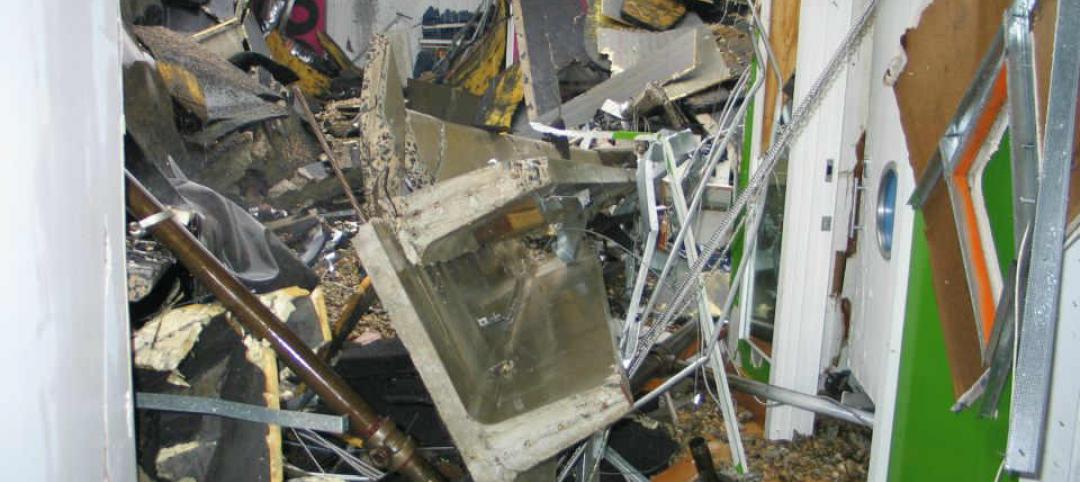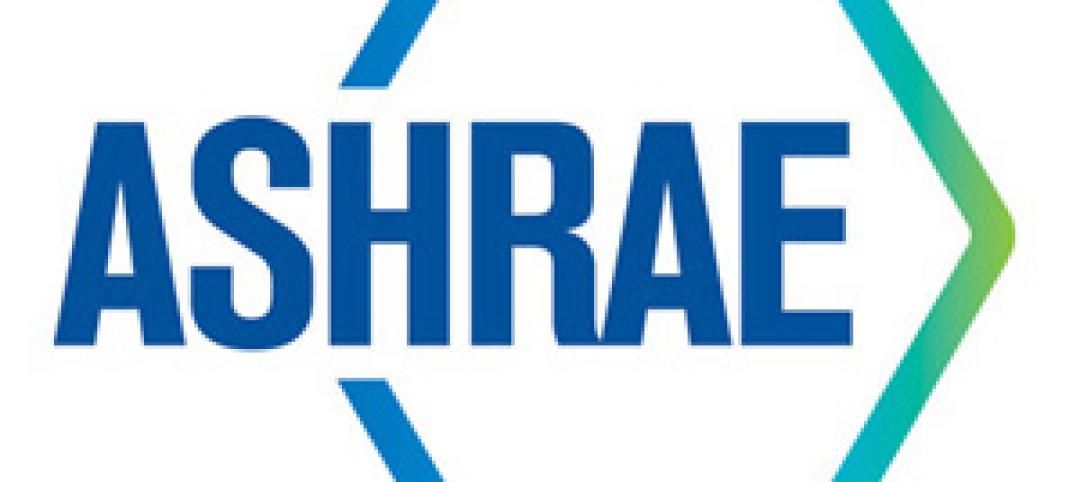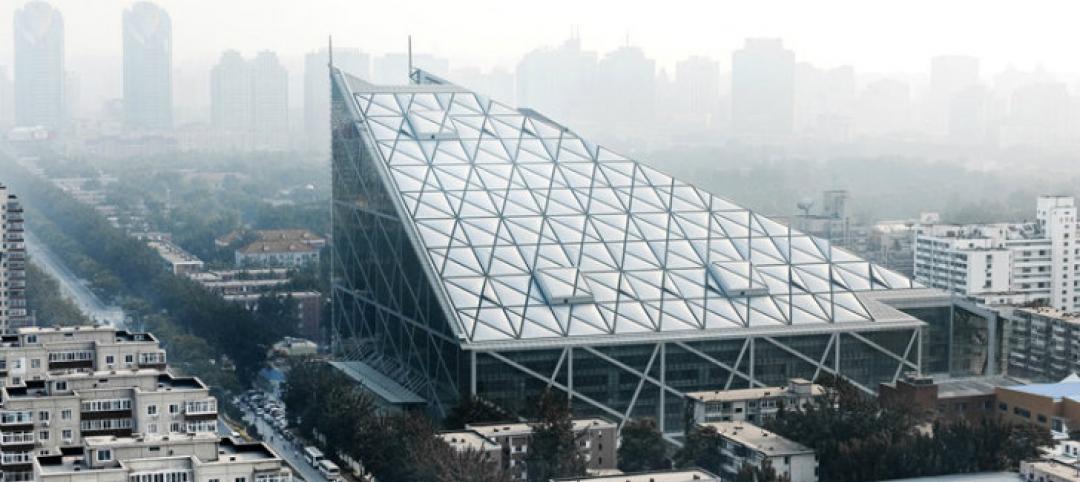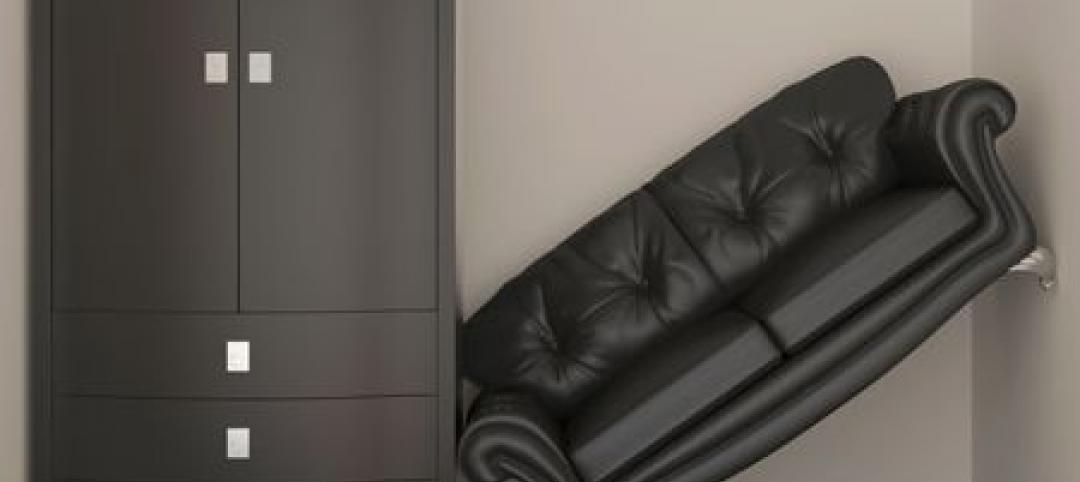The Washington, D.C., practice of global design firm Perkins&Will has pledged to eliminate embodied carbon in every commercial interiors space it designs by 2030.
“We’re setting this ambitious benchmark as a necessary response to the global climate crisis,” says Perkins&Will architect and sustainability expert Jon Penndorf. “We believe the District of Columbia and surrounding communities can lead the way for the rest of the country.”
Embodied carbon is an aggregate of all emissions released during ingredient extraction, product manufacturing, transportation, and end-of-life reuse or non-use. Statistics suggest embodied carbon is responsible for 11% of all global greenhouse gas emissions annually, the firm says. In the building sector, it accounts for more than a quarter of emissions.
“It’s been ingrained in architects and designers to think of heating and cooling as the biggest culprit, some of the worst climate change offenders—our building materials—are hidden in plain sight,” says Perkins&Will architect Rod Letonja. The problem is compounded by interior renovations and new tenant fit-outs. Old interior building materials frequently get discarded rather than reused, and with large leases turning over every 10 years on average, the emissions impact increases over time.
Related Stories
| Aug 2, 2012
Greenbuild summit will focus on greening affordable housing
A two-day summit focused on green building in the affordable housing market will be held Nov. 13 - 14, 2012 in San Francisco, Calif. at the Greenbuild International Conference & Expo.
| Aug 2, 2012
More than 250 downtown El Paso, Texas buildings don’t meet safety codes, says city’s fire department
A total of 726 buildings were inspected for unsafe conditions, and 266 did not meet safety codes, while 112 buildings were found to be vacant and needed further inspection.
| Jul 26, 2012
Wisconsin may establish stormwater storage requirement for green roofs
Green roofs and other green infrastructure would be required to capture stormwater under a draft state wastewater discharge permit from the Milwaukee Metropolitan Sewerage District.
| Jul 26, 2012
SouthPark Mall in Charlotte reopens after heavy rains collapse part of its roof
Code enforcement officials in Charlotte, NC gave the okay for the SouthPark Mall to reopen after two parts of its roof collapsed following heavy rains last week.
| Jul 26, 2012
New NRCA photovoltaic roof systems guidelines released
The National Roofing Contractors Association’s update of its Guidelines for Roof Systems With Rooftop Photovoltaic Components is now available.
| Jul 26, 2012
DOE/ASHRAE design guide aims to cut energy use at hospitals, schools, retail stores
The Advanced Energy Design Guidelines from the Department of Energy and the American Society of Heating, Refrigerating and Air Conditioning Engineers aims to provide ways for hospitals, schools, and large retail buildings to trim their energy consumption by 50%.
| Jul 19, 2012
Bayview Property Managers agrees to record $800,000 building code fine
A San Francisco property-management company has agreed to pay a record $800,000 civil fine for hundreds of building code violations at rental properties.
| Jul 19, 2012
Glass ‘biodome’ helps Parkview Green FangCaoDi project in Beijing achieve LEED Platinum
A glass envelope acting as a kind of biodome encapsulates four mixed-use towers at Parkview Green FangCaoDi, an 800,000 sf mixed-use development in Beijing. The glass structure helped the development to achieve LEED Platinum certification.
| Jul 19, 2012
UMass-Boston's Bevington: 'Financing alternatives crucial to energy-efficiency upgrades'
It’s conceivable that innovation in project finance can do for building efficiency in the coming century what 30-year mortgages did for home ownership in the last, this article asserts.
| Jul 19, 2012
NYC eases building code to create ‘micro apartments’ in Kips Bay
New York City has implemented a program to encourage construction of "micro-apartments" in the Big Apple, where rents are exorbitant and the number of singles is on the rise.
















